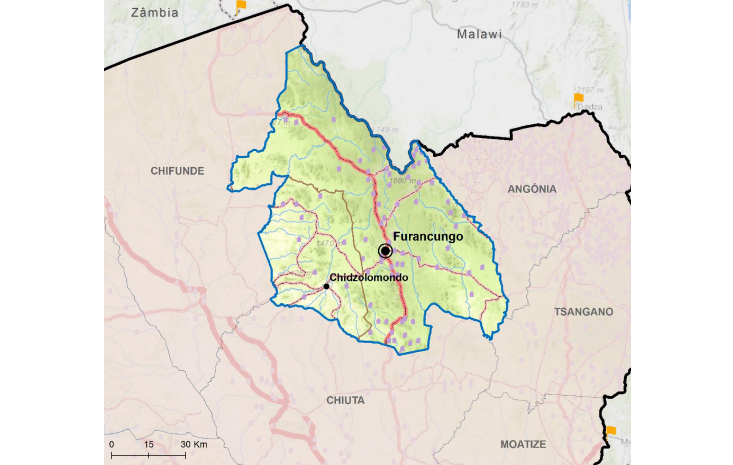Mozambique to export US$5 million a month of electricity to Malawi - report
Mozambique: Help wildcat miners to organise – Minister Tonela

Map Biofund
Mozambique’s minister for mineral resources and energy, Max Tonela, said on Wednesday that wildcat miners should be organised into associations and cooperatives with a view to ending illegal mining in the country and boost families and the nation’s economy.
“One of the strategies we have to face up to this reality [of illegal mining] is to work with communities promoting associations and cooperatives,” Tonela told journalists on the sidelines of a visit to Mozambique Mining Resources (MMC), a company in Macanga district, in Tete province, in central Mozambique.
Organising illegal miners will make it easier to integrated them quickly into the legal sector and bring them knowledge of more advantageous and environmentally sustainable production processes.
“With the formalisation of illegal mining, we want to ensure that commercialisation allows gains for the country and for Mozambican families,” the minister stressed.
On the other hand, he said, the authorities are committed to completing the ‘Kimberley Process’, an international mechanism aimed at certifying the origin of ores, so as to exclude those that come from war zones or which result from practices that violate human rights.
Read more: Gov’t distances itself from news of supposed gold reserves in Nairoto, Cabo Delgado
The director-general of Mozambique’s National Mining Institute (INAMI), Adriano Sênvano, said at the event that there is illegal mining at hundreds of sites in the country and that hundreds of thousands of people are involved in the activity. He said that a census of the practice was to be carried out to amass reliable data on the activity, such as the number of miners, their age, nationality and motivations.
“The idea is that the results of the census will help us to bring the money that is lost from the activity into the national economy and make it clear to the illegal people that they also earn by being part of a legal business,” Sênvano explained.
Read more: Macanga, Tete: More than 4,000 illegal foreign miners expelled
At the same time, he said, the state is committed to facilitating procedures for granting mining licences in order to encourage operators to regularise their activity.
He estimated the losses to the state caused by illegal mining at “millions of dollars”.
In terms of tax revenues, the state collects $120 million (€101 million) annually from the legal mining of precious metals and gems.
Read more: Worker dies due to illegalities in Chinese-owned Cassossole gold mine, Tete province – Mozambique
Mozambique: Gold plunder in Niassa assumes industrial proportions – O País












Leave a Reply
Be the First to Comment!
You must be logged in to post a comment.
You must be logged in to post a comment.